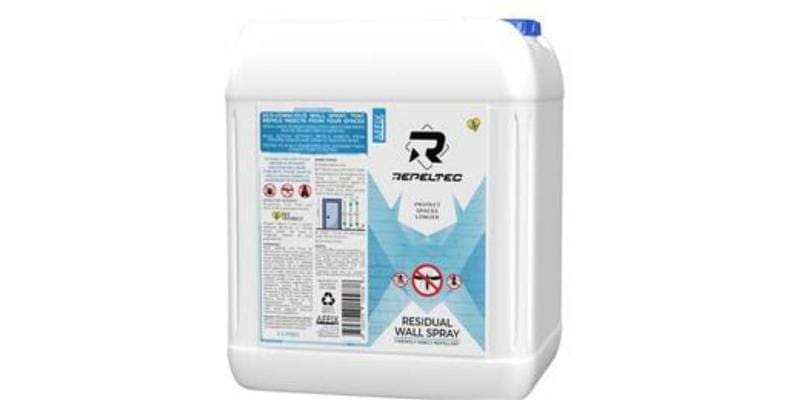Helsinki, February 23, 2022 – In the global efforts to combat insect borne diseases, non-profit organizations and governments have looked towards residual indoor spraying as one of the tools to fight mosquito carried diseases like Malaria, Dengue, and Chikungunya. The approach leaves a thin layer of pesticides on walls inside residential spaces. The big downside to traditional residual indoor sprays is that they are classified as hazardous. Repeltec, a new coating developed by AFFIX Labs, a Finnish technology start-up, aims to be the safest indoor residual spray on the market to repel insects.
Repeltec’s coating creates a clear layer that adheres to a surface and utilizes a controlled release of a spatial repellent that drives insects away from a treated space. In addition, the coating temporarily interferes with the ability of insects to detect and bite people, breaking the infection cycle.
The active ingredient used by AFFIX Labs is commonly found in skin lotions and has the lowest toxicity ratings as classified by the World Health Organization (WHO). Once released, the active ingredient is biodegradable, minimizing a long-term risk to the local environment. The environmentally conscious solution drives insects away from treated spaces without killing them, meaning it avoids adversely effecting ecosystems including bee colonies.
After lab studies in Germany, France, and South Africa, Repeltec is currently undergoing field trials executed by Somalian government malaria program, combating the disease without damaging the environment.
Field trials for this potentially game changing coating, designed and supported by the WHO and the Somalian governments malaria program, are now underway to prove the efficacy of Repeltec in real world settings. 20 locations have been treated and are being actively monitored for mosquito count, species detected, feeding behavior. The goal of these trials is to show that Repeltec can replace traditional solutions.
“We are seeing promising results and receiving great community feedback. Where people have been reluctant to allow pesticides to be sprayed in their houses, a friendlier solution like Repeltec is the future of a sustainable fight against Malaria.” States Dr.Abdikarim Husein Hassan, head of the Somalian Malaria program in Puntland.
According to the WHO: “Somalia has a high-burden of malaria, and between 2000 and 2019, an estimated 759 000 cases and 1942 deaths from malaria have occurred. Various control efforts undertaken by the Government with the support of WHO and the United Nations Children’s Fund (UNICEF) and funded by the Global Fund have resulted in the reduction of incidence from 2.6 cases per 1000 population in 2014 to 1.8 per 1000 population in 2020, showing a 25% reduction.” These results show the effectiveness of the malaria program itself.
After successful trials AFFIX Labs is ready to roll out Repeltec coatings for non-profit organizations and commercial partners in Somalia and other regions replacing toxic residual spraying programs with the friendlier Repeltec solution. “We started the company with the aim to replace toxic products with future proof solutions. These field trials are the result of years of hard work and we are grateful for the support given by the Somalian ministry of health and the Somalian Malaria program,” says AFFIX Labs CEO, Tom Sam.

